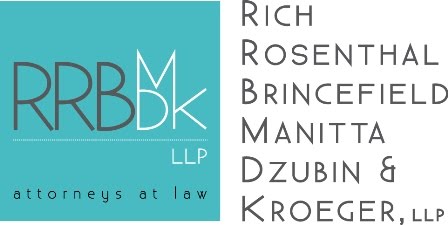The use of Powers of Attorney (“POAs”) has become commonplace in all manner of transactions. In its most basic form, a POA authorizes someone to act on your behalf. Sometimes, POAs are used for convenience or expediency. For example, a party to a real estate contract might grant a POA to an agent to execute the necessary paperwork. Other times, POAs are used when the principal lacks the capacity or ability to make certain decisions for himself. In such situations, POAs can be used to manage or sell property, authorize appropriate medical care, and provide for dependents. What happens, however, when a POA is granted to someone that does not have the principal’s best interests at heart? What remedies are available to the principal and/or his family when it appears that the person entrusted with the POA is self-dealing?
In response to the deepening flood of litigation involving Powers of Attorney (“POAs”), the Virginia General Assembly recently promulgated Uniform Power of Attorney Act (“UPAA”)(Va. Code Ann. §§ 26-72, et. seq.) Prior to the enactment of UPAA, there was no comprehensive statutory regulation of POAs. Instead, the courts were largely guided by common law. UPAA provides specific enumeration of an agent’s duties under a POA and instruction on how others may challenge the actions of an agent.
The agent must:
1. Act in accordance with the principal's reasonable expectations to the extent actually known by the agent and, otherwise, in the principal's best interest;
2. Act in good faith; and
3. Act only within the scope of authority granted in the power of attorney.
With certain exceptions, the agent must also:
1. Act loyally for the principal's benefit;
2. Act so as not to create a conflict of interest that impairs the agent's ability to act impartially in the principal's best interest;
3. Act with the care, competence, and diligence ordinarily exercised by agents in similar circumstances;
4. Keep a record of all receipts, disbursements, and transactions made on behalf of the principal;
5. Cooperate with a person that has authority to make health care decisions for the principal to carry out the principal's reasonable expectations to the extent actually known by the agent and otherwise act in the principal's best interest; and
6. Attempt to preserve the principal's estate plan, to the extent actually known by the agent, if preserving the plan is consistent with the principal's best interest based on all relevant factors, including:
a. The value and nature of the principal's property;
b. The principal's foreseeable obligations and need for maintenance;
c. Minimization of taxes, including income, estate, inheritance, generation-skipping transfer, and gift taxes; and
d. Eligibility for a benefit, a program, or assistance under a statute or regulation.
Upon suspicion that an agent has violated any of the duties enumerated above, anyone of the following persons may petition the circuit court to review the actions of an agent:
1. The principal or the agent;
2. A guardian, conservator, personal representative of the estate of a deceased principal, or other fiduciary acting for the principal;
3. A person authorized to make health care decisions for the principal;
4. The principal's spouse, parent, or descendant;
5. An adult who is a brother, sister, niece, or nephew of the principal;
6. A person named as a beneficiary to receive any property, benefit, or contractual right on the principal's death or as a beneficiary of a trust created by or for the principal that has a financial interest in the principal's estate;
7. The adult protective services unit of the local department of social services for the county or city where the principal resides or is located;
8. The principal's caregiver or another person that demonstrates sufficient interest in the principal's welfare; and
9. A person asked to accept the power of attorney.
An agent that violates the UPAA is liable to the principal or the principal's heirs for the amount required to:
1. Restore the value of the principal's property to what it would have been had the violation not occurred; and
2. Reimburse the principal or the principal's heirs for the attorney fees and costs paid on the agent's behalf.
This statutory scheme is only beginning to be tested in Virginia courts. Case law will further hone and define the duties owed by an agent under a POA and the remedies available to others upon a finding that the agent has breach his duties to the principal. But the UPAA is the first step toward a establishing a uniform framework for handling claims involving POAs.
Subscribe to:
Post Comments (Atom)

No comments:
Post a Comment